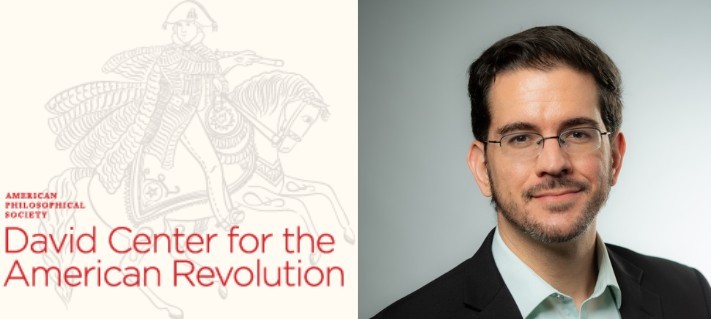"Men at War and the Ties that Bind: Northeastern Revolutionary War Patriots of Color and their Concerns Along the Home Front," with Benjamin Remillard

The fifth 2024-2025 David Center for the American Revolution Seminar will take place March 12, 2025 at 3:00 p.m. ET on Zoom.
The speaker Benjamin Remillard is a Visiting Assistant Professor in the Department of History and Classics at Providence College. He recently received his Ph.D. in History from the University of New Hampshire and his current book project, Friends, Brothers, and Citizens: The Revolutionary War Veterans of Color Who Shaped the Early Republic, explores the lives of the Revolution’s veterans and non-veteran Patriots of color who lived across the Northeast during the early American republic.
Remillard will be presenting his paper titled "Men at War and the Ties that Bind: Northeastern Revolutionary War Patriots of Color and their Concerns Along the Home Front." A description of the paper is below. The paper will be pre-circulated to registered participants in advance of the seminar meeting.
To attend the seminar and to receive a copy of the paper, please register via Zoom.
The David Center for the American Revolution Seminar serves as a forum for works-in-progress that explore topics in the era of the American Revolution (1750-1820). Questions about the series may be directed to Brenna Holland, Assistant Director of Library & Museum Programs, at [email protected].
NOTE: Seminars are designed as spaces for sharing ideas and works still in-progress. For this reason, this event will not be recorded.
As we approach the 250th anniversary of the nation's founding, much will be said and written about the Patriots who made American independence possible. Included among them should be the Black and Indigenous men who risked their lives alongside their white neighbors and allies in the battles of the Revolutionary War. These Patriots of color had many reasons to enlist and fight. Some did so to secure their freedom from slavery. Others were drawn in by dangerous yet financially promising jobs during a period of economic uncertainty. Some acted on their own sense of patriotism. Some even saw an opportunity to build alliances with their white neighbors and allies. But by and large, most Patriots of color did not enter the War thinking of themselves as ready-made, professional soldiers, and hardly any would see combat in the decades after the War's conclusion. That all is to say, soldiering was not the only thing they thought about. During that window of time when they served in the Continental forces, many had concerns along the home front that weighed on their minds. So what did an enlistment with the rebel forces mean to those who enlisted as single men, or to those who either entered or exited the service as husbands and fathers? When we focus on their lives outside of the military, we can better understand that the War, while formative, was just one short segment of these Patriots’ much longer and larger lives.
